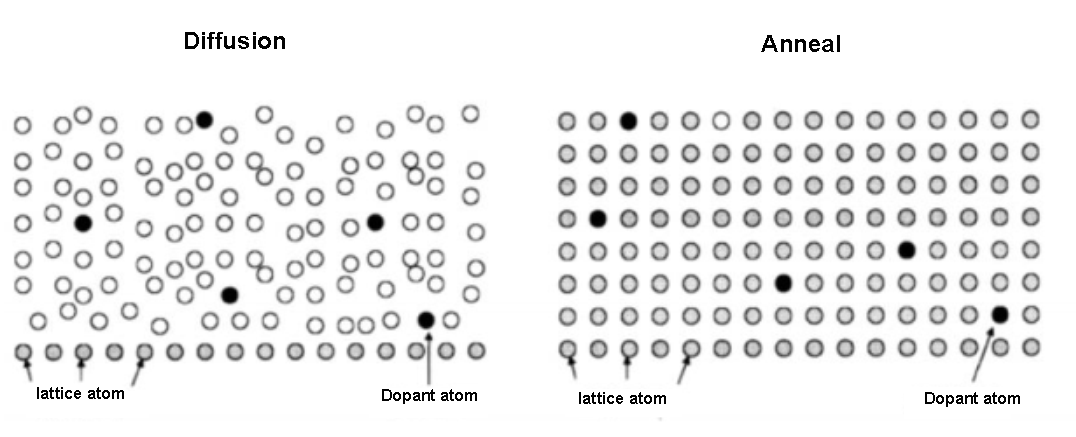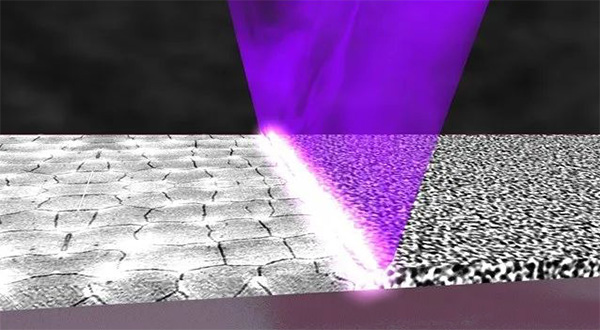
- English
- Español
- Português
- русский
- Français
- 日本語
- Deutsch
- tiếng Việt
- Italiano
- Nederlands
- ภาษาไทย
- Polski
- 한국어
- Svenska
- magyar
- Malay
- বাংলা ভাষার
- Dansk
- Suomi
- हिन्दी
- Pilipino
- Türkçe
- Gaeilge
- العربية
- Indonesia
- Norsk
- تمل
- český
- ελληνικά
- український
- Javanese
- فارسی
- தமிழ்
- తెలుగు
- नेपाली
- Burmese
- български
- ລາວ
- Latine
- Қазақша
- Euskal
- Azərbaycan
- Slovenský jazyk
- Македонски
- Lietuvos
- Eesti Keel
- Română
- Slovenski
- मराठी
- Srpski језик
What is Thermal Annealing
2024-09-25
The annealing process, also known as Thermal Annealing, is a crucial step in semiconductor manufacturing. It enhances the electrical and mechanical properties of materials by subjecting silicon wafers to high temperatures. The primary goals of annealing are to repair lattice damage, activate dopants, modify film properties, and create metal silicides. Several common pieces of equipment used in annealing processes include customized SiC-coated parts such as susceptor, covers, etc provided by Semicorex.

Basic Principles of Annealing Process
The fundamental principle of the annealing process is to use thermal energy at high temperatures to rearrange the atoms within the material, thereby achieving specific physical and chemical changes. It mainly involves the following aspects:
1. Lattice damage repair:
- Ion implantation: High-energy ions bombard the silicon wafer during ion implantation, causing damage to the lattice structure and creating an amorphous area.
- Annealing repair: At high temperatures, the atoms within the amorphous area are rearranged to restore the lattice order. This process typically requires a temperature range of about 500°C.
2. Impurity activation:
- Dopant migration: Impurity atoms injected during the annealing process migrate from the interstitial sites to the lattice sites, effectively creating doping.
- Activation temperature: Impurity activation typically requires a higher temperature, around 950°C. Higher temperatures lead to greater activation rates of the impurity, but excessively high temperatures can cause excessive impurity diffusion, impacting device performance.
3. Film modification:
- Densification: Annealing can densify loose films and alter their properties during dry or wet etching.
- High-k gate dielectrics: Post Deposition Annealing (PDA) after the growth of high-k gate dielectrics can enhance dielectric properties, reduce gate leakage current, and increase the dielectric constant.
4. Metal silicide formation:
- Alloy phase: Metal films (e.g., cobalt, nickel, and titanium) react with silicon to form alloys. Different annealing temperature conditions lead to the formation of various alloy phases.
- Performance optimization: By controlling the annealing temperature and time, alloy phases with low contact resistance and body resistance can be achieved.

Different types of annealing processes
1. High-Temperature Furnace Annealing:
Features: Traditional annealing method with high temperature (usually over 1000°C) and long annealing time (several hours).
Application: Suitable for applications requiring high thermal budget, such as SOI substrate preparation and deep n-well diffusion.
2. Rapid Thermal Annealing (RTA):
Features: By taking advantage of the characteristics of rapid heating and cooling, annealing can be completed in a short time, usually at a temperature of around 1000°C and a time of seconds.
Application: Particularly suitable for the formation of ultra-shallow junctions, it can effectively reduce the excessive diffusion of impurities and is an indispensable part of advanced node manufacturing.

3. Flash Lamp Annealing (FLA):
Features: Use high-intensity flash lamps to heat the surface of silicon wafers in a very short time (milliseconds) to achieve rapid annealing.
Application: Suitable for ultra-shallow doping activation with line width below 20nm, which can minimize impurity diffusion while maintaining a high impurity activation rate.

4. Laser Spike Annealing (LSA):
Features: Use laser light source to heat the silicon wafer surface in a very short time (microseconds) to achieve localized and high-precision annealing.
Application: Especially suitable for advanced process nodes that require high-precision control, such as the manufacture of FinFET and high-k/metal gate (HKMG) devices.
Semicorex offers high-quality CVD SiC/TaC coating parts for thermal annealing. If you have any inquiries or need additional details, please don't hesitate to get in touch with us.
Contact phone # +86-13567891907
Email: sales@semicorex.com




